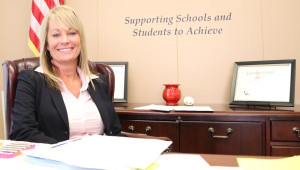The U.S. Department of Education Friday granted Idaho some leeway under federal education law.

The decision renews Idaho’s waiver from Elementary and Secondary Education Act, or ESEA, and the feds’ No Child Left Behind law.
“My decision to renew approval of Idaho’s ESEA flexibility request is based on my determination that ESEA flexibility has been effective in enabling Idaho to carry out important reforms to improve student achievement and that this renewal is in the public interest,” Ann Whalen of the U.S. Department of Education wrote in a letter to state superintendent Sherri Ybarra and State Board of Education President Don Soltman. “With this renewal, Idaho will be able to continue implementing its plan to promote innovative, locally tailored strategies to improve educational outcomes for all students, close achievement gaps, increase equity and improve the quality of instruction.”

On July 31, Soltman, Ybarra and the State Board approved Idaho’s revised waiver application and submitted it to the feds.
As Ybarra has described it, the waiver seeks to:
- “Push the pause button” on Idaho’s school accountability model for one more year. Idaho had used a five-star rating system to gauge school accountability, but that system was originally put on hold while schools and students transitioned to the Idaho Core Standards and new assessment tests. A state subcommittee is reviewing the accountability model, and may recommend a replacement system.
- Discontinue the statewide instructional management system known as Schoolnet and allow local districts to use their own models.
- Remove some of the sanctions associated with the Adequate Yearly Progress component of No Child Left Behind.
“I am pleased to make this announcement today, and to have the flexibility in making decisions that best meet the needs of local schools and students throughout the state,” Ybarra said in a news release. “This is our opportunity to create a mutually responsible accountability system, which focuses on a motion picture of growth over time rather than a snapshot in the day of the life of our students. …
“This is also our opportunity to move forward collaboratively with all stakeholders, and have the flexibility with our one-year waiver to make necessary revisions in the future to best meet the needs of kids.”
In her letter, Whalen asked Ybarra and Soltman to commit to working with stakeholders to implement ESEA flexibility; identify Idaho’s highest performing and high-progress “reward schools” by Oct. 31; include 2016-17 student growth data in teacher and principal evaluations; and use summative ratings from 2016-17 and beyond to inform personnel decisions.
Idaho’s approved ESEA waiver is available online.
